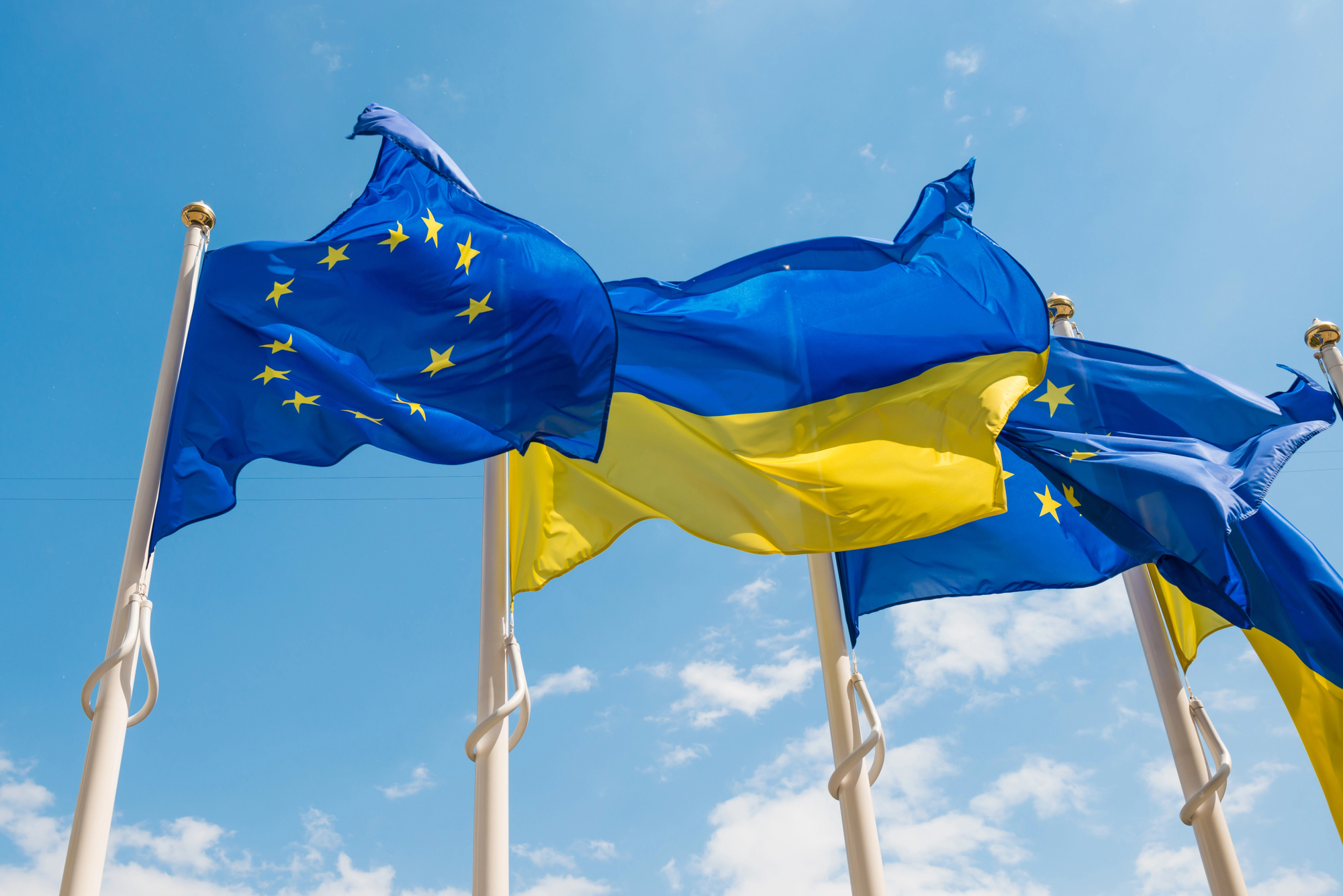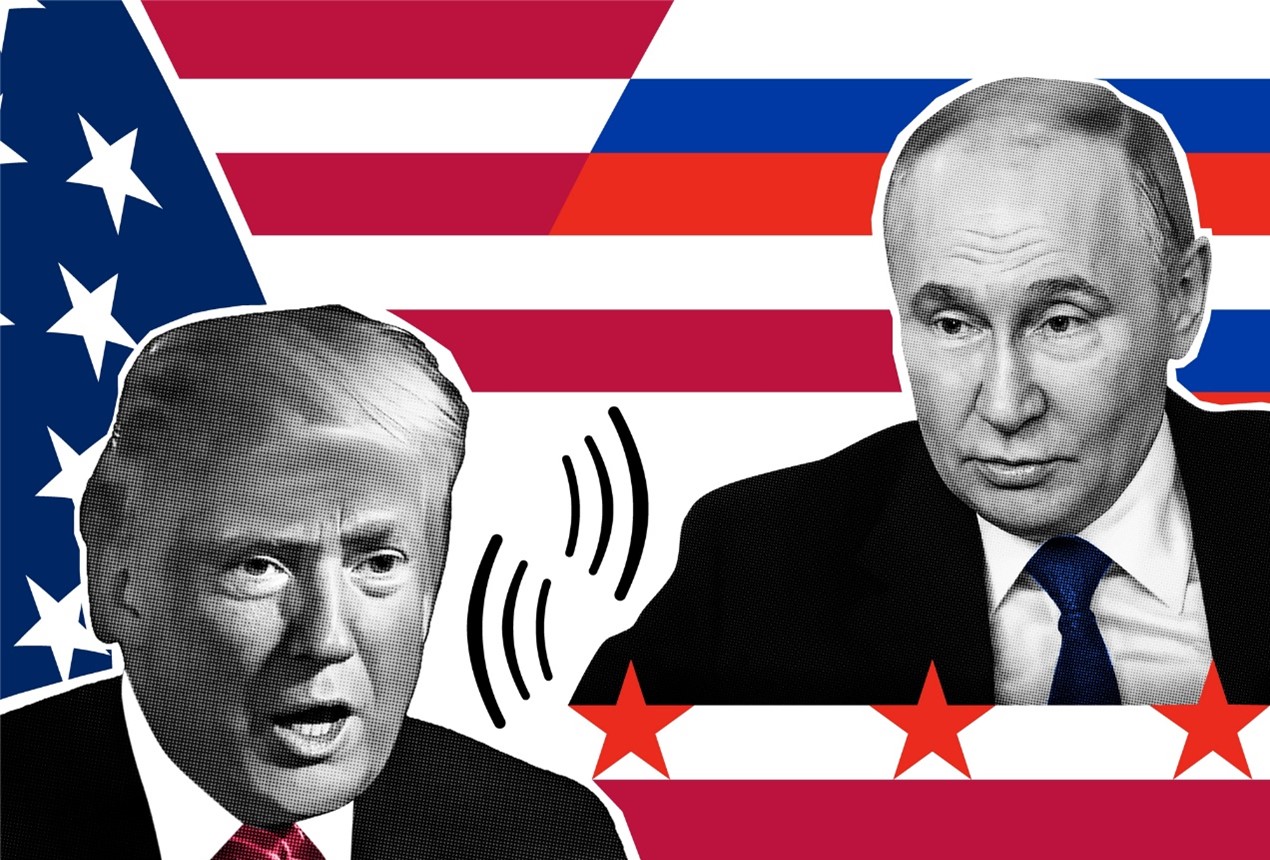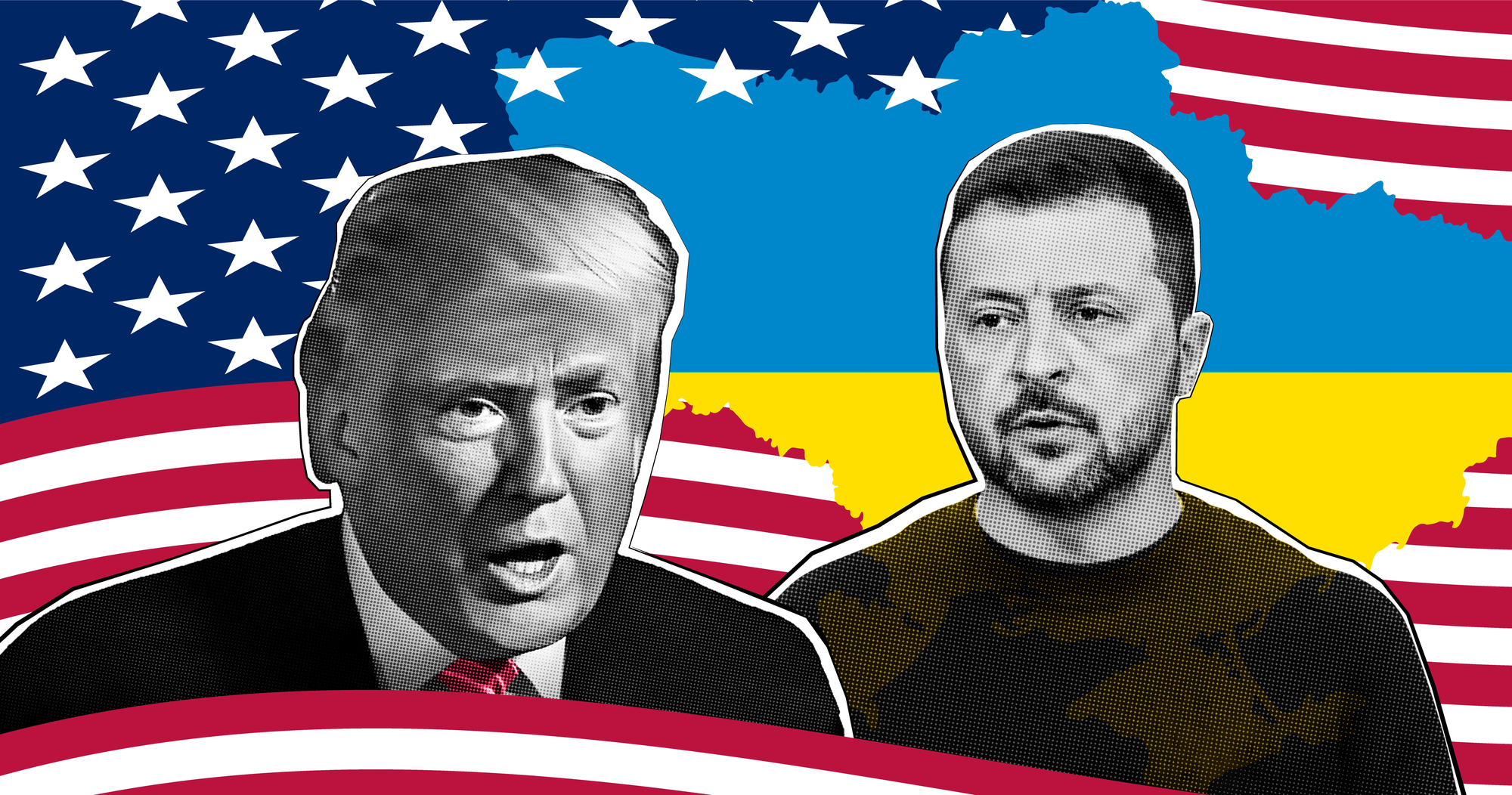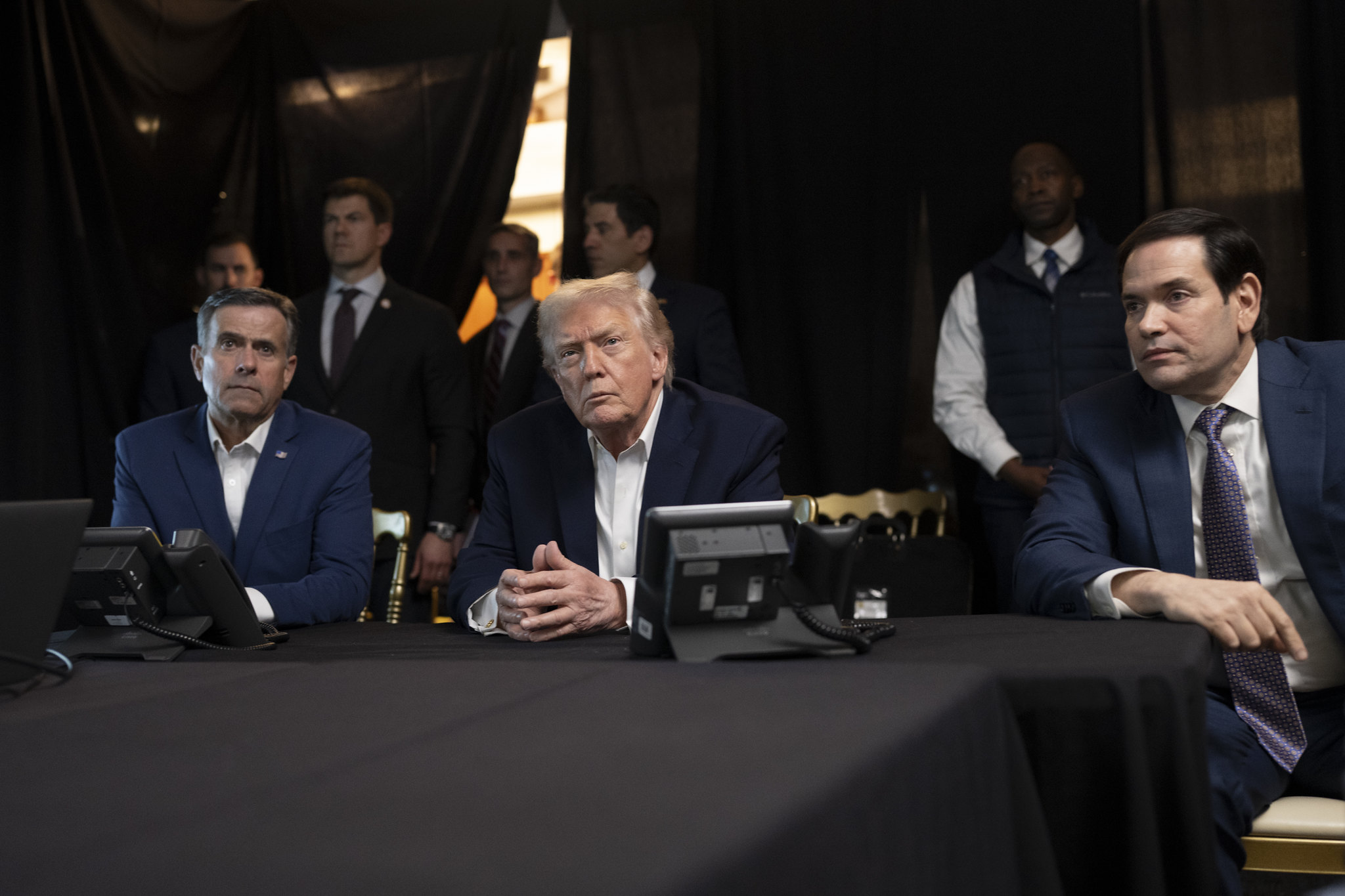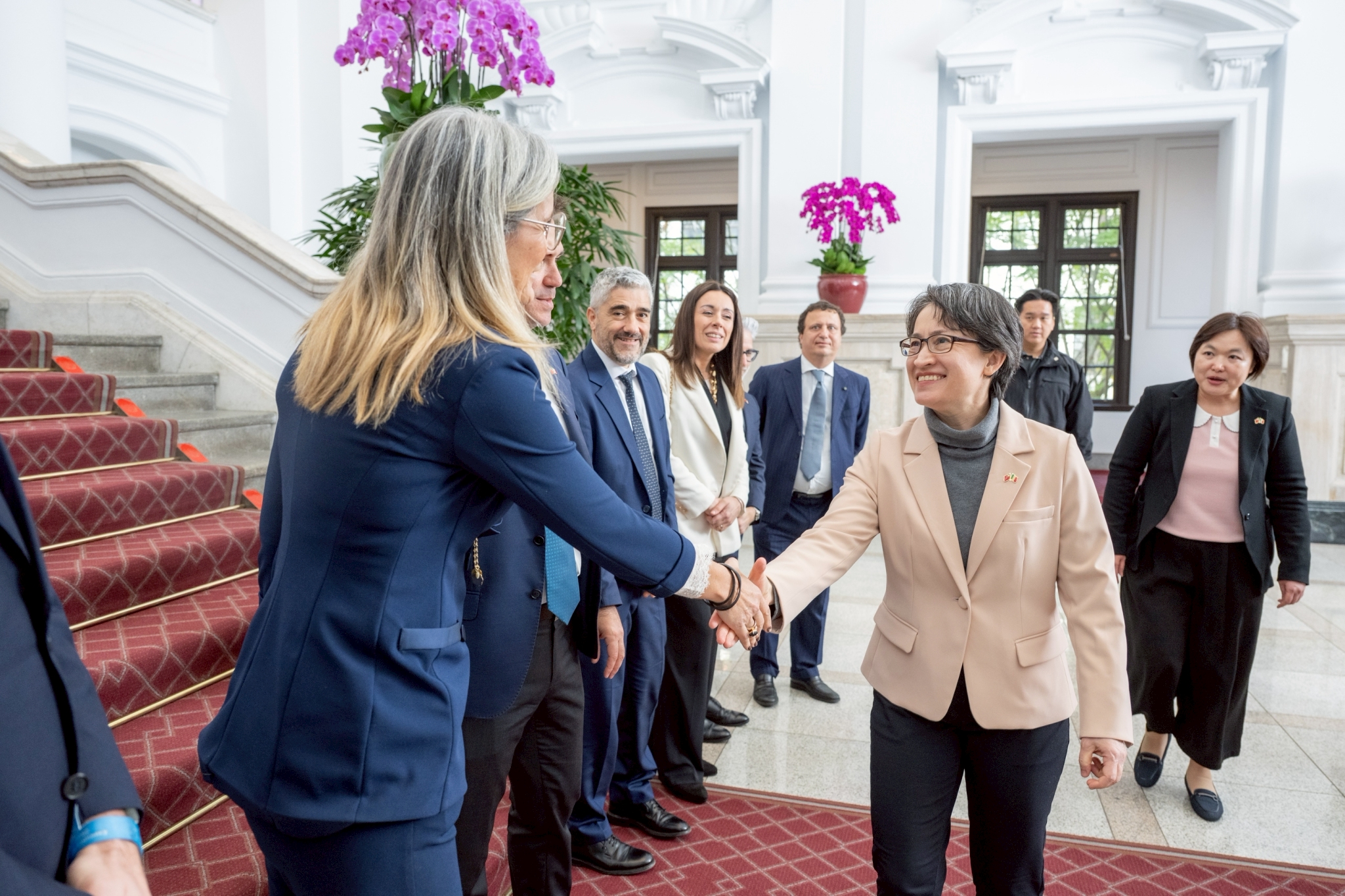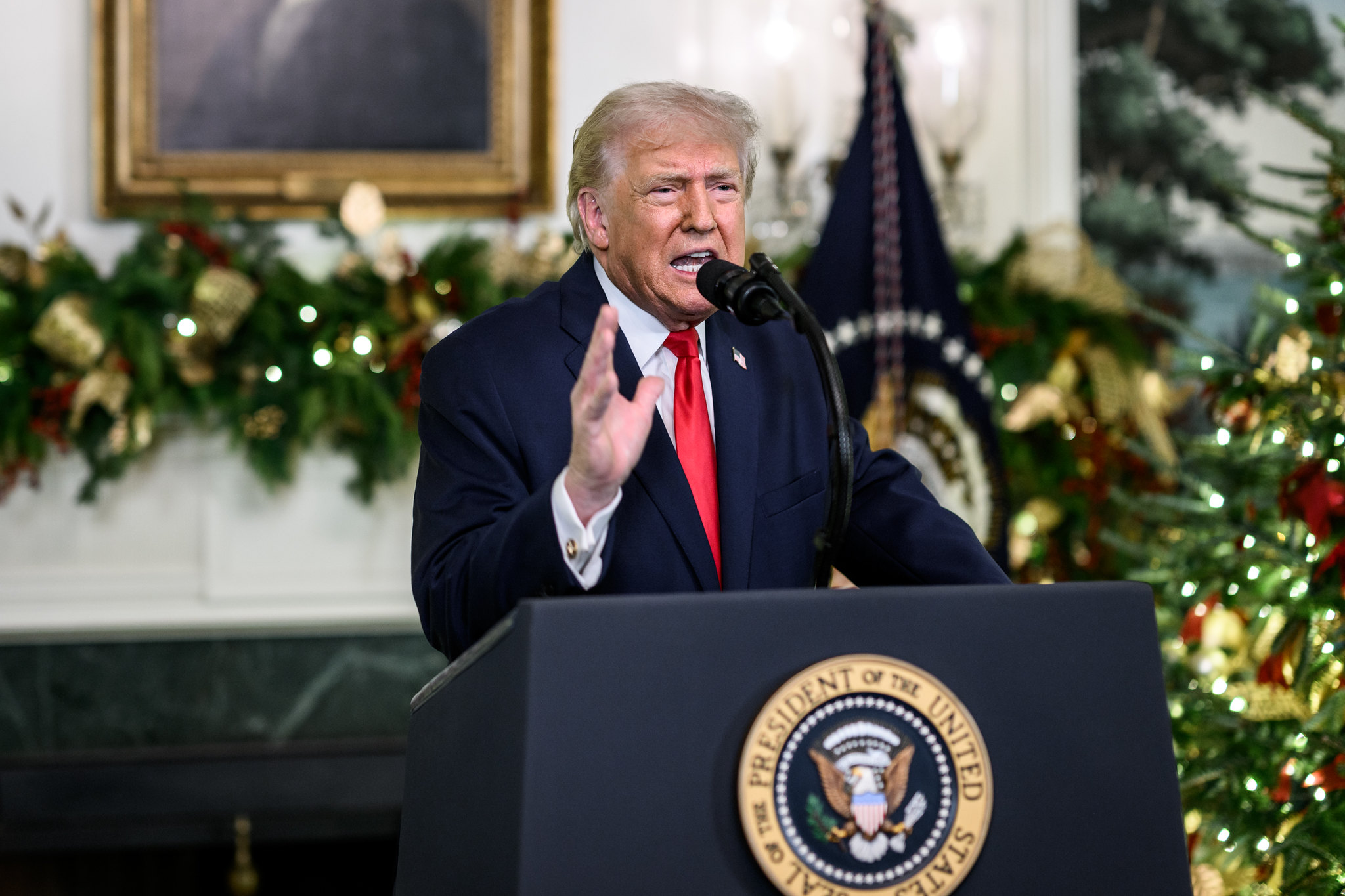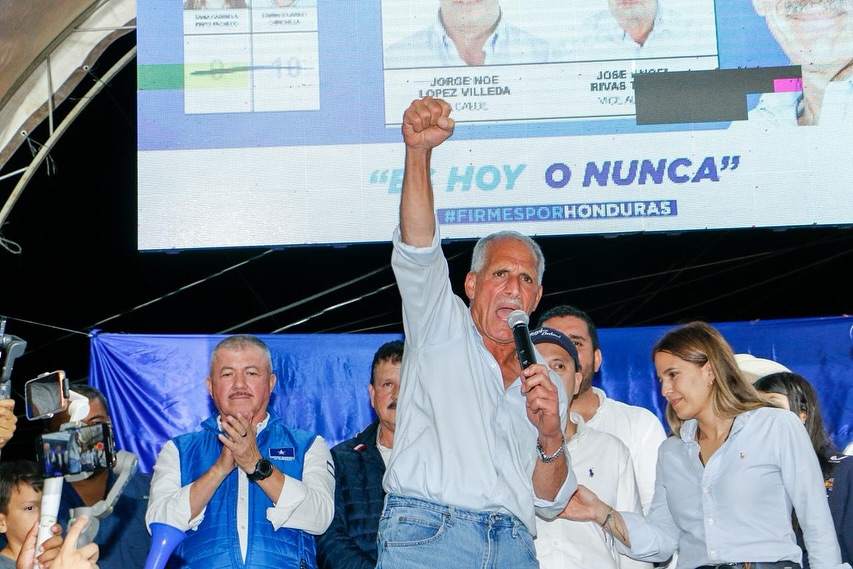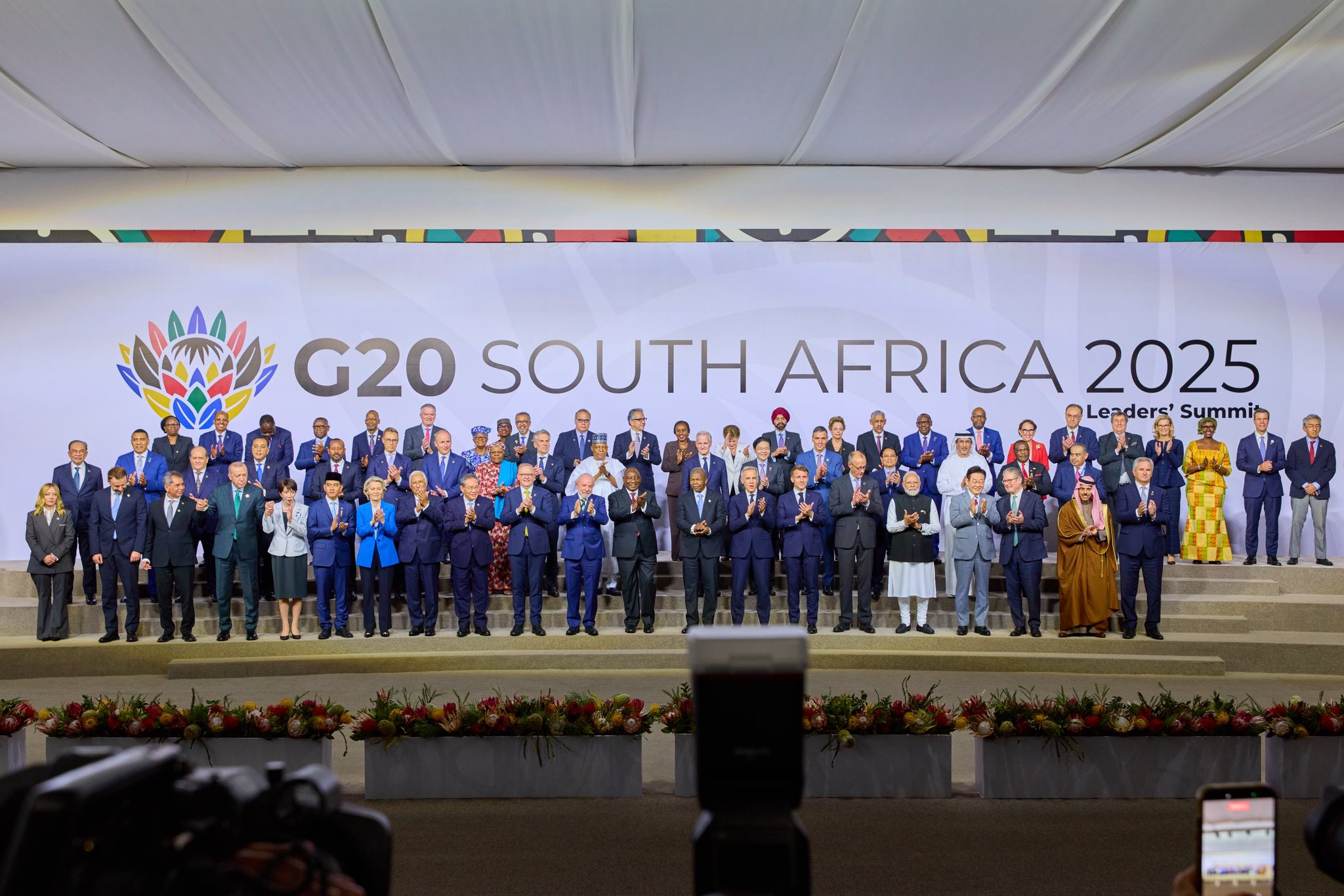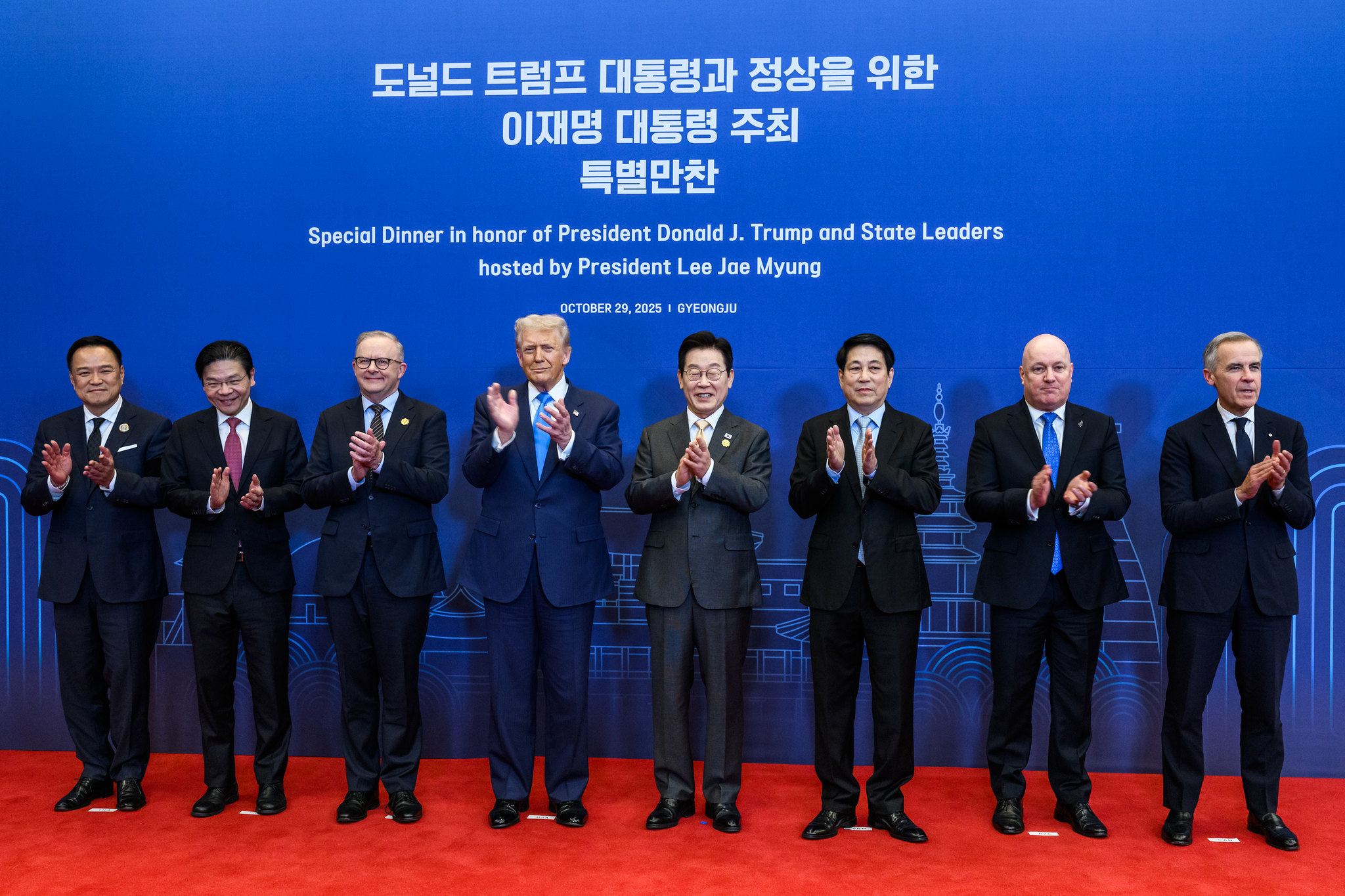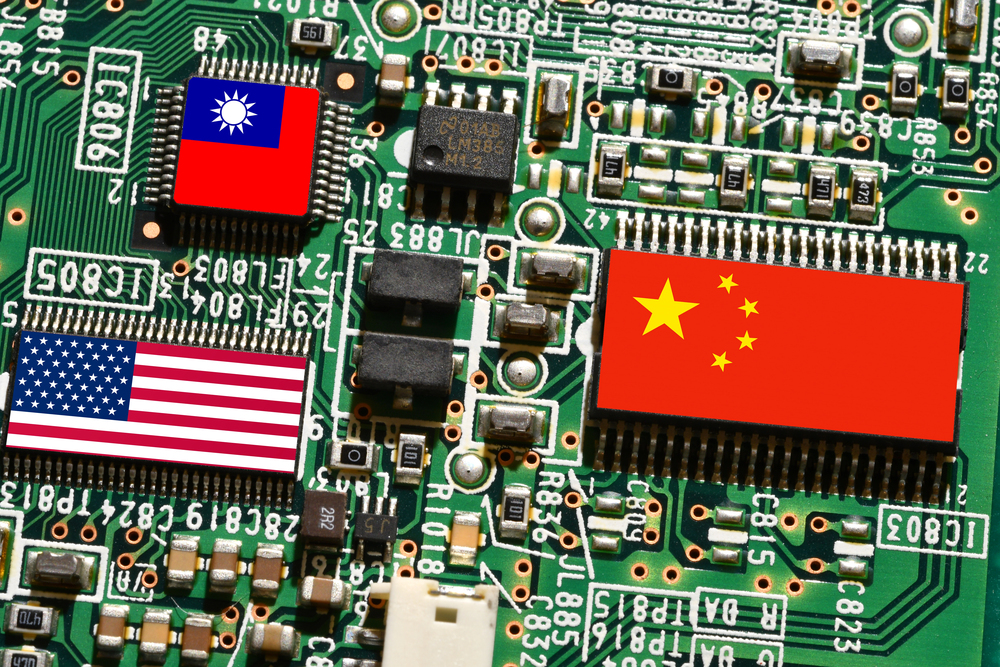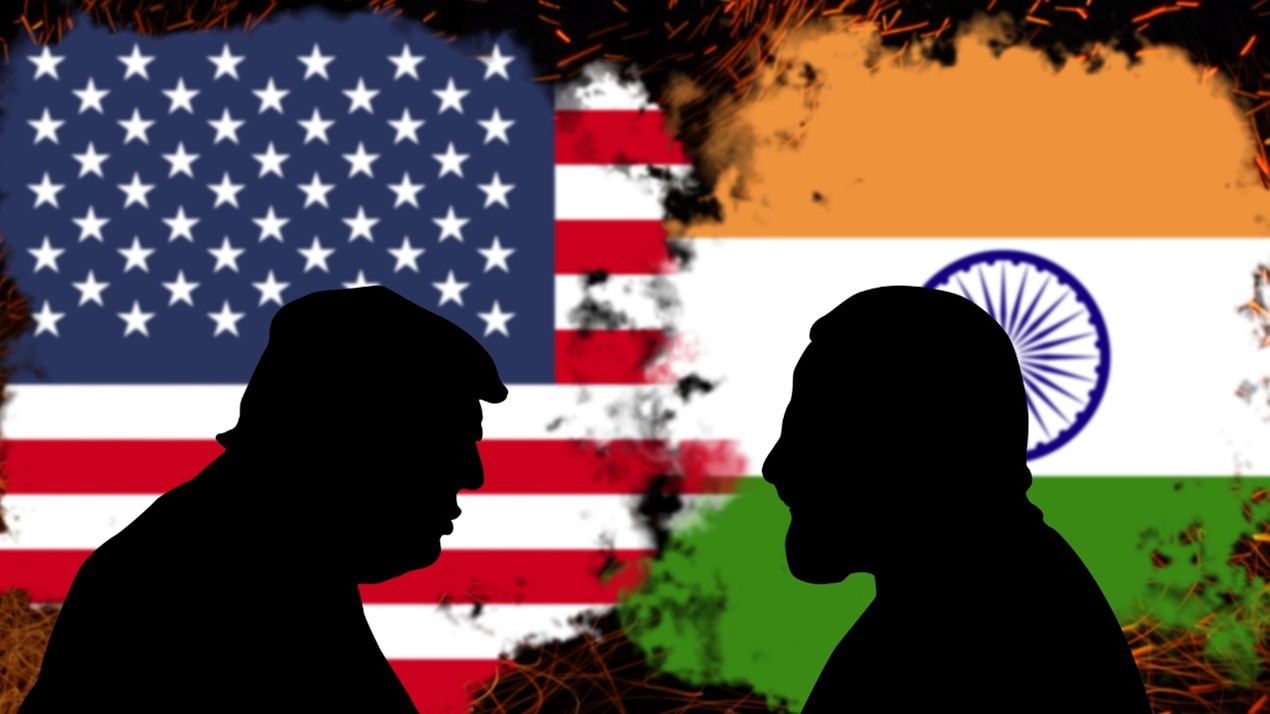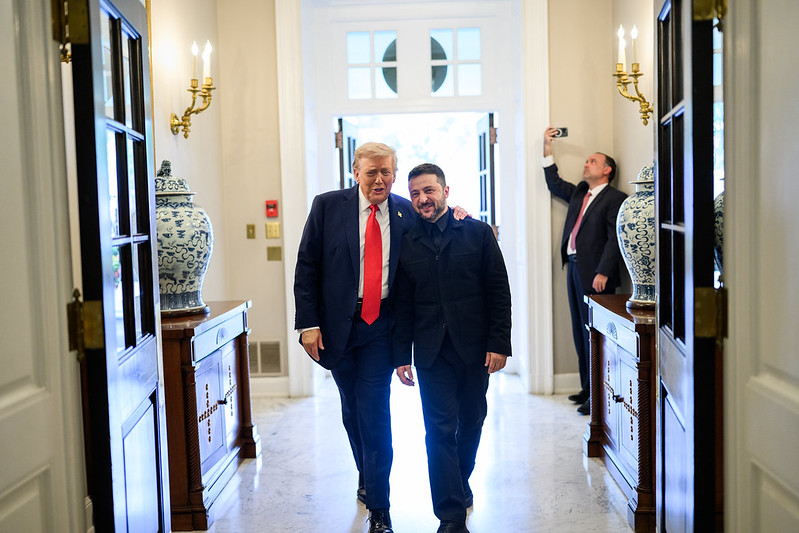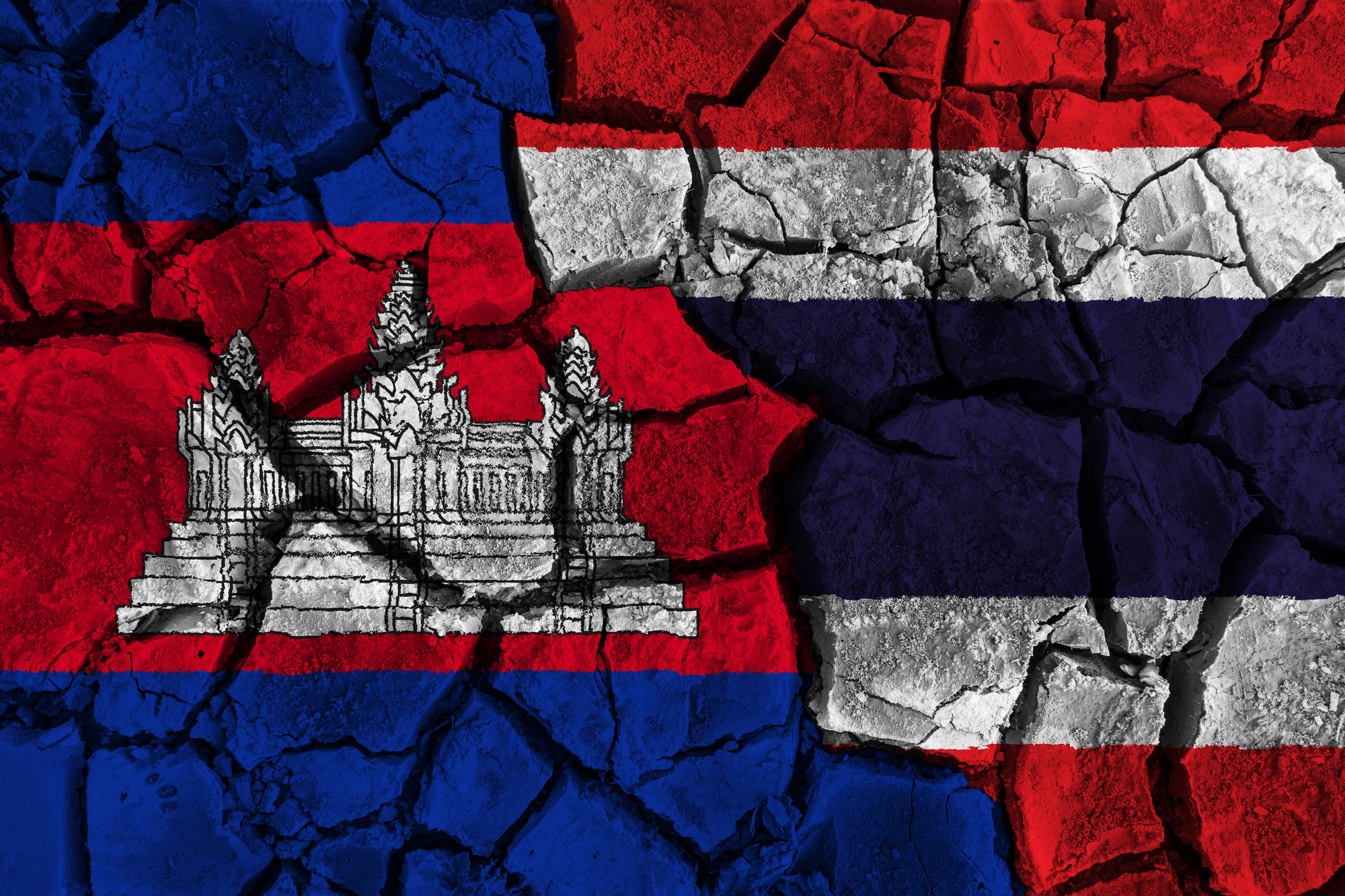The Awakening of a Resolute Europe: How Ukraine is Forcing Europeans to Take Their Own Security Seriously
As the United States shows signs of waning interest in supporting Ukraine, Europe’s role in the ongoing conflict is becoming critically important. Ukraine is sounding the alarm, and Europe is gradually waking up. Picture source: Depositphotos.
Prospects & Perspectives No. 37
The Awakening of a Resolute Europe: How Ukraine is Forcing Europeans to Take Their Own Security Seriously
By Sergiy Solodkyy
As the United States shows signs of waning interest in supporting Ukraine, Europe’s role in the ongoing conflict is becoming critically important. Ukraine is sounding the alarm, and Europe is gradually waking up. While a growing number of European leaders now recognize the threat posed by Russia, a gap remains between awareness and action. Ukrainians are frustrated that support often arrives late, is partial, and lacks consistency. Still, Europe has made notable progress in recent years. Among some of the unprecedented decisions that have been made recently: Europe has lifted taboos on transferring critical types of weaponry to Ukraine; launched the ambitious €150 billion SAFE defense initiative; and officially recognized Ukraine as a candidate for EU membership. In Kyiv, there is strong interest in the emerging “Coalition of the Willing,” with hopes that Europeans will not only help bring the U.S. back into active support for Ukraine, but also play a decisive role in ending Russian aggression.
Europe’s Vicious Circle of Fears
Europe is undergoing a kind of awakening, as the ostensible crumbling of the old world order forces the continent to face choices and challenges it had long sought to avoid. (Throughout this analysis, the term “Europe” is used rather than “the EU,” as several non-EU countries — in particular the United Kingdom and Norway — have also provided critically important support to Ukraine.)
Today, Europe’s worldview is shaped by two key factors. First, Europe is coming to understanding that it can no longer rely on American support in the same way it did prior to the Donald Trump presidency. Second, Europeans increasingly understand that Russia’s aggression against Ukraine today could soon become aggression against other European states. These realizations are influencing policies aimed at ensuring Ukraine’s survival and preventing its defeat.
It is now evident that most of Europe’s key decision-makers grasp the danger posed by Russia’s revanchist, imperial aggression. Many leaders have begun to predict when Russia might turn its military power toward Europe. NATO Secretary General Mark Rutte has warned that Russia could attack the Alliance within five years. German Defense Minister Boris Pistorius has said the country must be prepared for war by 2029. French President Emmanuel Macron has stated that the Russian threat could extend beyond Ukraine and that Europe must prepare for a future without guaranteed U.S. support.
While it appears that most of Europe’s key decision-makers fully recognize the nature of the Russian threat, the central issue remains: can they bridge the gap between understanding the danger and mustering the political will to confront it effectively?
Ukrainian officials — politicians, diplomats, analysts — debate regularly with their European counterparts. These exchanges often reaffirm Europe’s declared commitment to Ukraine, and a comprehensive list of accomplishments is usually cited: financial packages, arms deliveries, military training, and numerous declarations of support. Yet, when Ukrainians propose more ambitious measures, they are met with the refrain that European societies are fatigued and would not support further strengthening of aid.
Several recurring arguments underpin this cautious stance:
Domestic political risk. Governments fear increasing defense expenditures – especially those directed at Ukraine – due to potential backlash from voters. In many countries, opposition parties exploit support for Ukraine to criticize ruling politicians. In some cases, like Hungary, anti-Ukrainian rhetoric is mainstream government policy. Romania came close to electing a presidential candidate who campaigned on ending military support to Kyiv.
Escalation management. For a long time, many European states were hesitant to provide advanced weaponry out of concern it could provoke Russia and lead to further escalation. Germany once was afraid of sending Leopard tanks; the U.S. initially opposed the delivery of F-16 combat aircraft. Long-range missiles were likewise delayed. These fears are often rooted in the nuclear retaliation blackmail from Moscow.
Economic dependency. Europe’s reluctance to implement bold sanctions has been shaped by long-standing reliance on Russian energy. After the 2014 annexation of Crimea, several countries not only failed to sever ties, but deepened energy cooperation with Moscow – despite clear warnings from Ukraine that this would embolden Russian aggression.
Fear of Russian collapse. Some Western policymakers argue that Putin’s defeat might lead to internal chaos in Russia, potentially resulting in state failure or the rise of even more radical leadership.
Ukrainians have been trapped in this sinister cycle for over a decade. Kyiv has consistently outlined what must be done to counter Russian aggression – arguing that Moscow can be stopped only through power, not words. Europe, in turn, has been slow to react, which looked like weakness and reluctance. Finally, European countries do provide support and adopt meaningful decisions, but often years too late. Frequently, these measures are partial and diluted, giving Moscow time to adapt and find ways to bypass them.
Had the EU and the U.S. imposed serious sanctions in March 2014, the annexation of Crimea – and the subsequent aggression – might have been averted. Had the West delivered substantial weapons to Ukraine in the winter of 2022, Russia might not have launched its full-scale invasion. After more than 10 years of missteps, one would expect the West to have learned that weakness only encourages further escalation from Moscow. Instead, the United States is now led by a politician who proposes incentivizing Vladimir Putin to negotiate by halting support for Ukraine, a strategy that predictably emboldens Russia’s militarism.
Only the Resolute Will Prevail
Ukraine is trying to awaken Europe, and the continent is stirring, albeit more slowly than Kyiv would prefer. Yet Europe’s transformation is becoming increasingly evident. Back in 2014, European leaders hesitated to impose even mild sanctions on Russia and shied away from meaningful decisions on security and defense. Today, the record is markedly different: Europe has made many bold choices, benefiting both Ukraine and itself.
One of the most significant breakthroughs at this stage is the EU’s adoption of the SAFE (Security Action for Europe) initiative, a sweeping program allocating up to €150 billion for investment in EU member states’ defense industries. Ukraine has been formally recognized as a partner in SAFE; Kyiv hopes European governments will prioritize procurement from Ukraine’s own defense sector. For Ukraine, strengthening its domestic defense industry is critical, as external arms deliveries remain slow, insufficient, and inconsistent.
It is important to highlight that since 2022, Europe has made something of a quantum leap in adopting unprecedented decisions regarding the supply of various types of weaponry to Ukraine. European governments have lifted long-standing taboos on critical systems: under Ukrainian pressure, they approved the transfer of advanced artillery, air defense systems, armored vehicles, aircraft, and more. Currently, Ukraine is counting on Germany to deliver Taurus cruise missiles, which could play a pivotal role in striking deep behind enemy lines, especially in Crimea. As of now, Taurus remains one of the few weapon systems still held back by lingering fears among European leaders.
Europe has also played a decisive role in helping Ukraine avoid economic collapse. Thanks to substantial budgetary support, Ukraine has maintained a relatively stable financial and economic situation. Since the start of Russia’s war of aggression, the EU and its member states have provided €149.8 billion in support for Ukraine and its people, of which €78.4 billion was directed toward financial, economic, and humanitarian aid.
Equally important is the fact that, in the fourth year of Russia’s full-scale aggression, public support for Ukraine remains strong across the EU. Putin had counted on Western societies – particularly Europeans – growing weary of backing Ukraine. Instead, 76 percent of Europeans continue to approve of providing financial and humanitarian assistance to Ukraine, while 59 percent support the EU’s funding of military equipment deliveries to Ukraine.
The European Union’s decision to grant Ukraine candidate status for EU membership ranks among its most consequential geopolitical steps in recent history. What once seemed implausible before 2022 is now reality. Accession talks have begun, and both sides are negotiating the scope and pace of the reforms Ukraine must implement. Optimists in Kyiv hope these reforms will position the country to join the EU by 2030.
Although criticism about Europe’s slow decision-making and lack of unity on key issues can still be heard in Ukraine, the changes in Europe’s approach to security and defense are undeniable and increasingly evident. Encouraging steps are being taken by France and the United Kingdom toward forming a “Coalition of the Willing.” At the New Europe Center, this grouping is described not merely as a “Coalition of the Willing” but as a Coalition of the Resolute – because many countries may want to support Ukraine, but what truly matters is taking concrete actions and demonstrating resolute commitment. Ukraine is watching the Coalition’s discussions on a potential military contingent with a particular interest. Kyiv believes such a contingent could serve as an effective temporary security guarantee until Ukraine fully joins NATO.
Enhancing Resilience
Relations between Ukraine and other European countries have gone through various phases. There was a time when Kyiv relied more heavily on U.S. support, due to a lack of full trust in some EU member states. Today, however, one can speak of a renaissance in Ukraine-Europe cooperation, especially with those countries that have joined the Coalition of the Resolute. Indeed, when the U.S. and Russia initiated talks on Ukraine, Kyiv immediately emphasized that such negotiations could not proceed without Europe’s involvement.
Naturally, Ukraine recognizes the challenges facing Europe: decisions are difficult because certain countries undermine overall unity. For example, the EU has been unable to open negotiation clusters for reforms in Ukraine because pro-Russian Hungary has vetoed the move. France and the UK are cautious about advancing discussions on sending a military contingent to Ukraine without firm guarantees from the United States.
At the same time, there is a growing understanding that the time has come to rethink decision-making within old formats and alliances. In this regard, France and the UK could play a foundational role by bringing other resolute countries together – primarily the U.S., but also Germany, the Netherlands, Poland, the Baltic states, and others. Ukraine’s resistance to Russian aggression and its pursuit of democratic reforms have become key factors inspiring other influential and responsible nations in Europe and beyond to seek the most effective ways to enhance their own resilience.
(Sergiy Solodkyy is the First Deputy Director of the New Europe Center, Ukrainian.)


